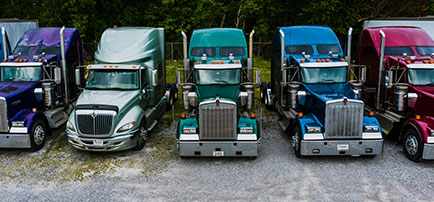Efficiency and Flexibility: Less Than Truckload (LTL) Shipping
Less Than Truckload (LTL) shipping is a logistics method used when freight doesn’t require a full truck’s capacity. It’s beneficial for businesses with smaller quantities of goods or shipments that don’t fill an entire truck. LTL consolidates multiple shipments from different customers into a single truck, optimizing space and cost efficiency. This approach allows businesses to share transportation costs, making it a cost-effective option compared to booking an entire truck for smaller loads.
One of the primary advantages of LTL shipping is its flexibility. It accommodates varying shipment sizes and frequencies, making it suitable for businesses with irregular shipping needs or smaller inventories. Moreover, LTL carriers provide extensive networks that cover numerous routes and destinations, offering businesses access to broader geographic reach without the need for dedicated transportation resources.
LTL shipping also promotes sustainability by reducing the number of trucks on the road. By consolidating shipments from multiple customers into one truck, LTL reduces fuel consumption and greenhouse gas emissions per unit of freight transported, contributing to environmental conservation efforts. Additionally, LTL carriers employ efficient route planning and load optimization strategies to minimize empty miles and maximize truck capacity utilization, further enhancing operational efficiency and reducing transportation costs.
In summary, Less Than Truckload (LTL) shipping offers businesses a flexible, cost-effective, and sustainable transportation solution for smaller freight volumes. By leveraging LTL services, companies can optimize logistics operations, reduce transportation costs, improve environmental footprint, and enhance overall supply chain efficiency and customer satisfaction.



